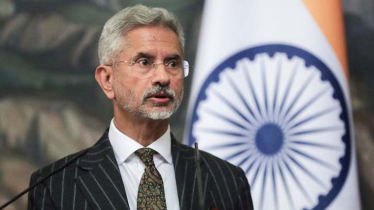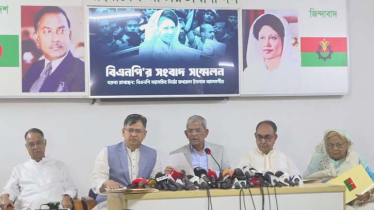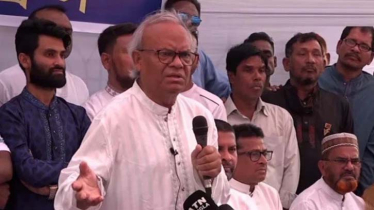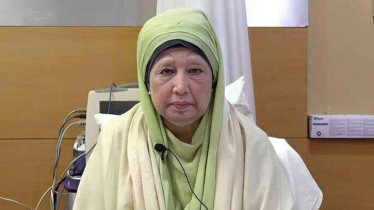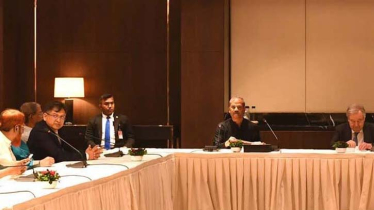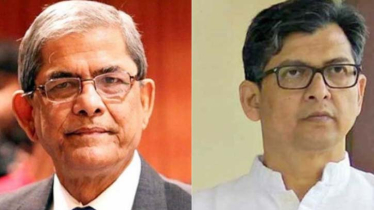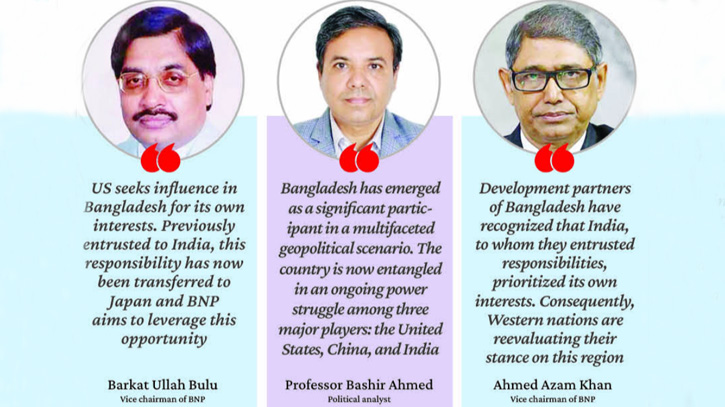
Photo : TDM
The geopolitical landscape in Bangladesh has undergone significant changes in the recent times, revolving around the upcoming general elections slated for later this year.
Development partners of Bangladesh have started to voice their concerns over the various inconsistencies of the current government. Notably, the United States, European Union, Japan, Australia, and other development partner countries have initiated discussions on human rights, voting rights, and democratic systems of Bangladesh.
Consequently, the current Sheikh Hasina government in Bangladesh has witnessed a decline in the level of support it once enjoyed from advanced countries. This shift in support has sparked hope among the country's main opposition party, the Bangladesh Nationalist Party (BNP).
The party (BNP) sees this as an opportunity to gain traction and strengthen its position in the political landscape. The wavering support from development partner countries has created a favorable environment for the BNP to assert its agenda and rally support against the ruling government.
Talking over the issue, Professor Bashir Ahmed from the Government & Politics Department of Jahangirnagar University, said, “Bangladesh has emerged as a significant participant in a multifaceted geopolitical scenario. The country is now entangled in an ongoing power struggle among three major players: the United States, China, and India.”
Meanwhile, Senior leaders of the BNP have conveyed their perspective to the Daily Messenger, emphasizing their stance on the evolving geopolitical dynamics.
Advocate Ahmed Azam Khan, a prominent lawyer and Vice Chairman of the BNP, expressed his views to the Daily Messenger, stating, "Over the past 14 years, our development partner countries have supported the current government. However, instead of establishing democracy, human rights, and voting rights, they have caused losses, committed murders, and sent people to their graves."
He also said, “We have observed that the government has implemented agendas of neighboring countries while neglecting the interests of our own nation. They have even failed to protect the interests of Western countries. Consequently, Western nations now have numerous concerns because it is widely acknowledged that authoritarianism cannot prevail where democracy and human rights are upheld."
Advocate Ahmed Azam Khan, a senior lawyer at the Supreme Court, stated, "Development partners of Bangladesh have recognized that India, to whom they entrusted responsibilities, prioritized its own interests. Consequently, Western nations are reevaluating their stance on this region."
Barkat Ullah Bulu, the former Jubo Dal president and Vice-Chairman of the BNP, has observed the geopolitical changes in South Asia.
Talking to The Daily Messenger, he thinks that India was entrusted with the responsibility of representing the United States' interests in the Indian subcontinent. Consequently, the United States itself, BNP and Bangladesh have suffered losses due to this arrangement.”
He said, “The United States seeks influence in Bangladesh for its own interests. Previously entrusted to India, this responsibility has now been transferred to Japan. Japan has assumed the role of managing Bangladesh, and the BNP aims to leverage this opportunity.”
Citing the example of Saddam Hussein, the former dictator of Iraq, he warned, “Iraq's four thousand years of history has been destroyed due to Saddam Hussein's mistakes. They are still paying the price for it.”
Following the initial letter to President Joe Biden, the country's Foreign Minister, Antony Blinken, has now sent letters to six American congressmen, marking the first time such correspondence has been made concerning Bangladesh.
The Joint Secretary-General of the BNP, Moazzem Hossain Alal, sees this as a response to the government's behavior. In an interview with the Daily Messenger, he stated, their "Bangladesh's geographical location spans South Asia and Southeast Asia, serving as a link between the two regions. This is why the United States attaches greater importance to it in geopolitical strategy, as per the declared policy of the Biden administration. A similar process has already been implemented in Nigeria, and efforts are underway to implement it in the Maldives. So we are hopeful… something is going to happen good for BNP.”
BNP leader also said, “Since the United States is the second-largest source of remittances, they are deeply concerned about corruption, human rights violations, and democracy in Bangladesh.”
TDM/SD

